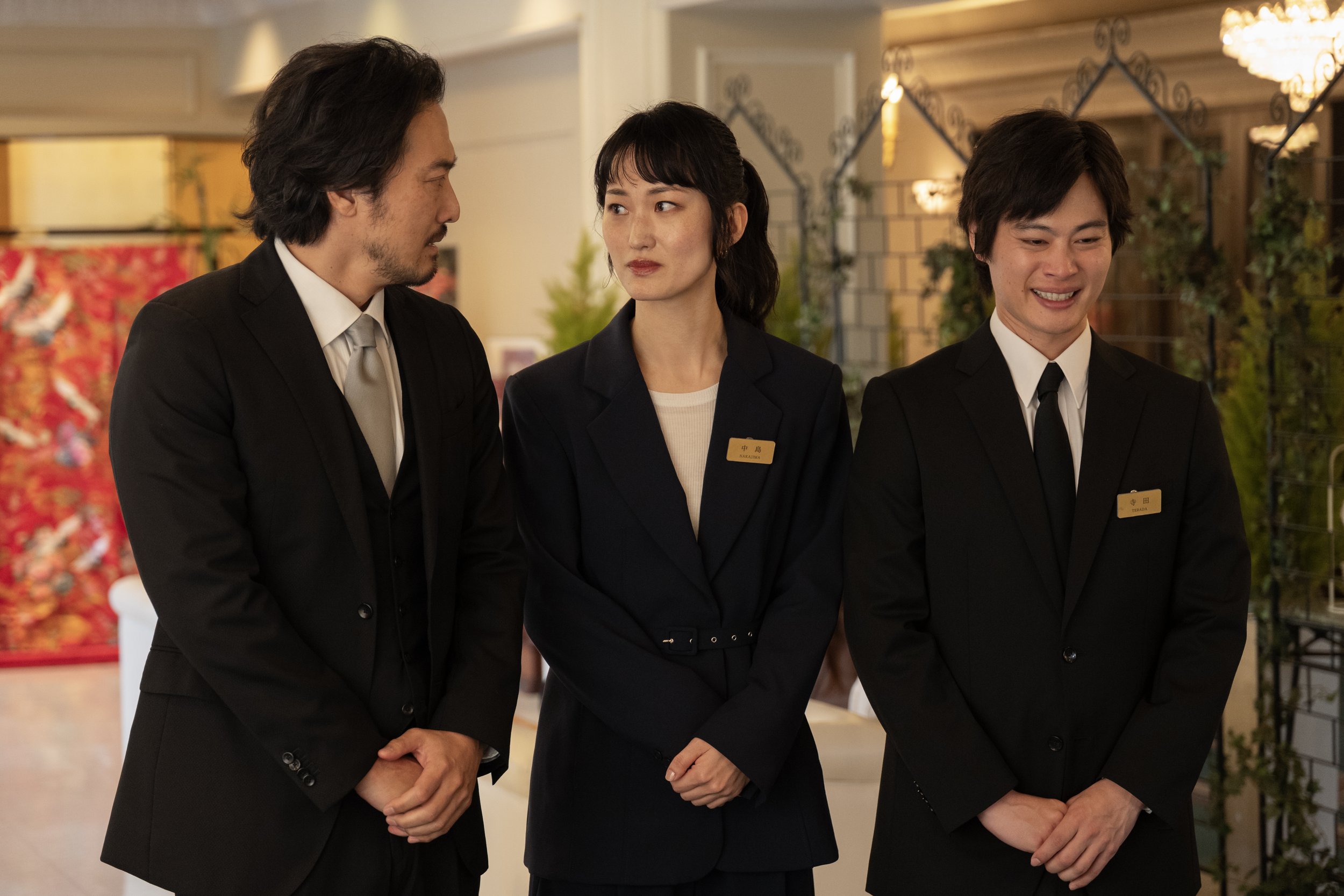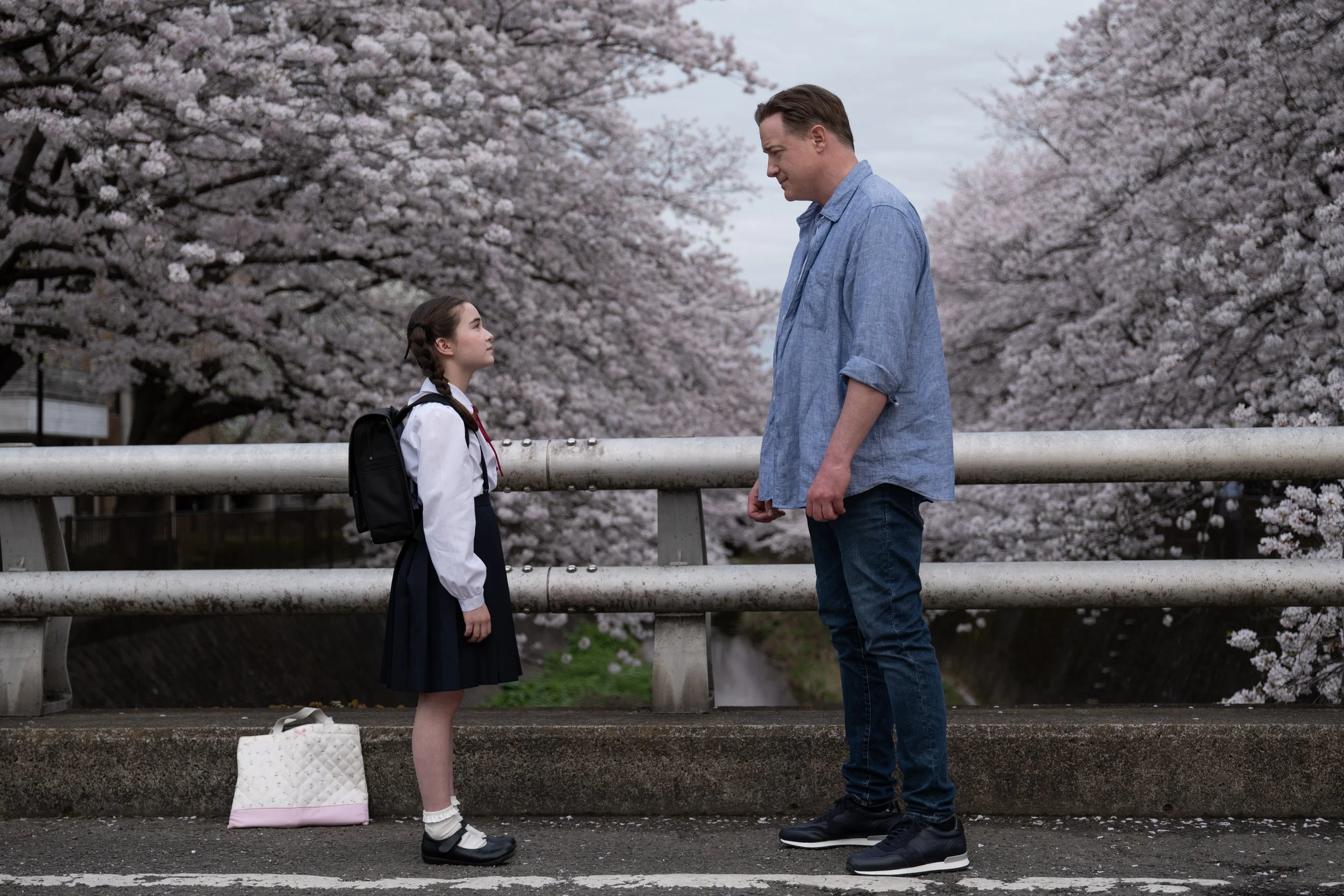Rental Family is a Cozy Film About What it Means to Truly Connect
Starring Brendan Fraser, Takehiro Hira and Mari Yamamoto, this Japanese film dissects cultural understandings of lying and what we owe one another.
Shannon Gorman (left) as Mia and Brendan Fraser (right) as Phillip in Rental Family. Photo courtesy of Searchlight Pictures.
In the opening scenes of Rental Family, a new film from Japanese American director HIKARI (Beef, 37 Seconds), Brendan Fraser’s Phillip finds himself stranded in Tokyo waiting for an acting gig—anything, really—to land in his lap. Phillip is the definition of washed-up: he came to Japan seven years ago to star in an absurdly cartoonish toothpaste commercial and jobs for this token white guy have dried up. Fraser and his large frame stands out among the Tokyo landscape: he looks out of place from everyone around him on the streets, and he feels like an outsider too.
It’s the perfect set-up for a film that is, at its core, about what it means to connect.
Eventually, Phillip’s agent calls him with an opportunity to join a rental family company—a business that “rents out” actors to play roles in people’s real lives. “We sell emotion,” the company’s boss Shinji (Takehiro Hira) tells Phillip. Taking on roles like token American at a faux-funeral and groom at a wedding designed to get parents off a daughter’s case, Phillip begins to get into the flow of these transactional gigs. The easy boundary between rental family and real family begins to blur when Phillip takes on two plum roles: the estranged father of a young girl named Mia (Shannon Gorman) and a journalist hired to profile an aging moving star (Akira Emoto).
Actor Mari Yamamoto, who plays rental family company employee Aiko, was drawn to the project because of its depiction of vulnerability and what can happen when you open yourself up to connection. To her, the script “showed the possibility that, if you’re open to it, you can find people who care for you.”
Takehiro Hira, Mari Yamamoto, and Bun Kimura (left to right) in Rental Family. Photo courtesy of Searchlight Pictures.
Rental Family also muses about the role of performance in everyday life. Though the film can make the cultural differences between Japanese culture and American culture feel flat—at times, the insistence on needing rental family services because Japanese society doesn’t have healthy outlets for big feelings can feel over-played—the way that all the characters are acting in their real lives complicates Rental Family. If all the world’s a stage, how should one act if they’re an actor playing a role that’s meant to simulate reality?
“I think we all perform in our lives to some extent,” Yamamoto says. “We’re not the same person to every single person in our lives; we adjust to their needs, we communicate our needs, we repress or suppress our needs. We’re constantly performing.”
Shannon Gorman (left) as Mia and Brendan Fraser (right) as Phillip in Rental Family. Photo courtesy of Searchlight Pictures.
Through the film, which is sometimes saccharine sweet and reliably predictable, it also never gives an easy answer as to whether or not this rental family phenomenon is a positive. On the one hand, a woman who dupes her family into believing she’s marrying a man so that she can truly live with her girlfriend feels like a win for everyone. On the other hand, getting close to a child just to expose yourself as a liar feels less cut-and-dry.
Ultimately, Rental Family is a fun, comforting film about building connections despite cultural differences around fundamental social questions: how much should we lie to one another? How should we let out our emotions during complex situations? And what does it truly mean to be family?
Rental Family is out in theatres on November 21.



